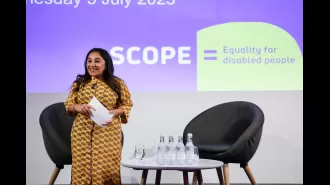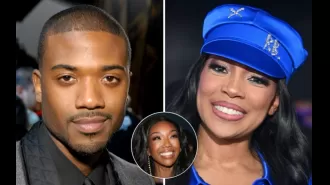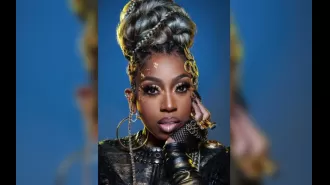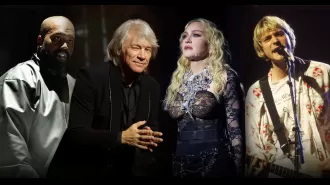Why is there a current fascination with the 90s and 00s?
Feeling nostalgic is like being on a strong drug and it's not surprising that we're all hooked on it currently.
September 21st 2024.
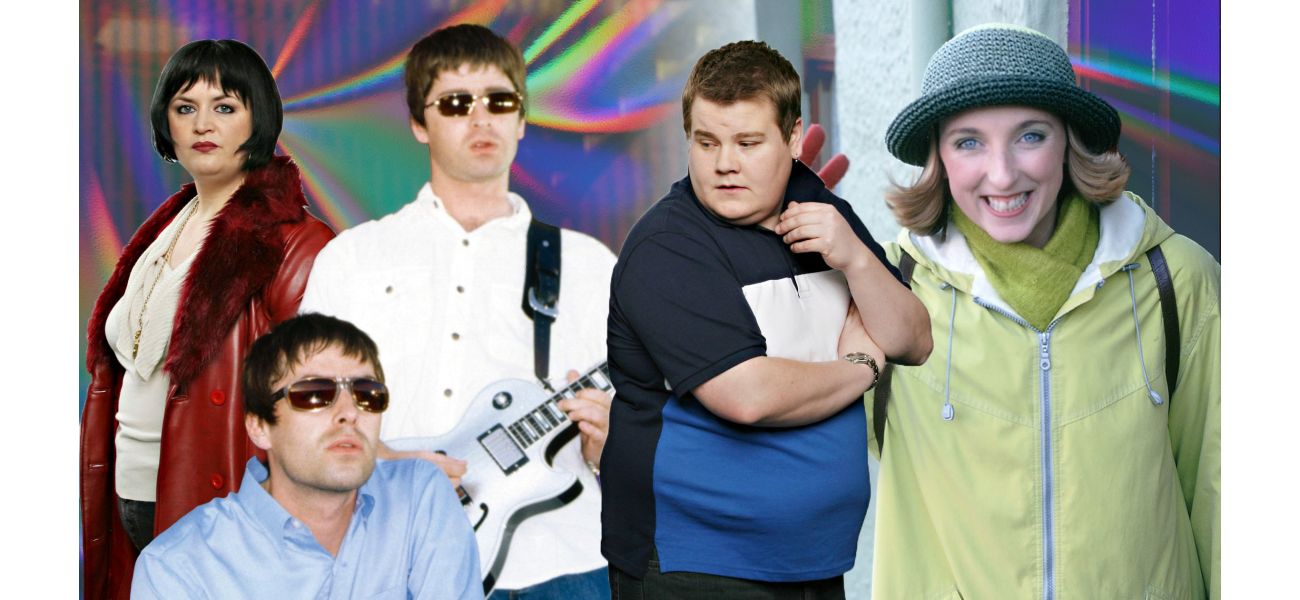
"Why does our cultural future seem to be stuck in the past? Even though we're in the year 2024, it feels like we've hopped into a time machine that's set for the late 90s and early 00s. Everywhere you look, there are reunions, reboots, and throwbacks to our favorite memories. But why are we so obsessed with reliving the past, and why is this nostalgia craze taking over the world?
It seems like there's a never-ending cycle of cultural output that's solely focused on recreating the golden era of the turn of the millennium. We call it the Good Old Days, and it's hard to miss the constant stream of marketable sentimentality. From Oasis reuniting to reviving niche CBBC shows from the mid-2000s, we can't seem to get enough of the 90s and 00s. Who needs new-age comedies when we can have a second helping of Freaky Friday or a Twister 2? And let's not forget the endless sequels, reboots, and revivals like Linkin Park 2.0, Fraiser, and Gavin and Stacey's Christmas special. Even the government is getting in on the nostalgia Olympics. Do I need to go on?
Just recently, filming wrapped for a sequel to Freaky Friday, 21 years after the original. And a Twister reboot has already smashed the summer box office. But when we step back and think about why there's such a strong desire to recreate this era, it starts to make sense.
We're living in an uncertain time, with the UK facing a cost-of-living crisis and the aftermath of a global pandemic. For those in their 30s and 40s, who are carrying the brunt of this pressure, it's no wonder that their youth serves as a form of escapism. As clinical psychologist Daniel Glazer puts it, "for those who came of age in the 90s, that decade's cultural output holds a special place in our hearts. The stories, voices, and aesthetics shaped our identities during our formative years. Even as the artistic landscape evolves, there's a timeless relatability to the raw humanity captured in iconic 90s media. It's an innate appeal that keeps these works feeling relevant and emotionally resonant even decades later."
With the rise of social media and streaming platforms, it's never been easier to tap into these memories. Just look at the recent announcement of the return of childhood series Balamory after two decades. But it's not just our personal memories that are driving this nostalgia craze. The current socio-political climate may also play a role, as people often seek comfort in the familiar during uncertain times. The late 90s and early 00s represent a time that many perceive as less complicated, and the cultural artifacts from that period, like the music of Oasis, serve as a reminder of that carefree time. It allows people to reconnect with their past and find solace in shared cultural experiences, as psychologist Manpreet Dhuffar-Pottiwal points out.
For some, the memories of the 90s feel more "real" and tangible compared to today's digital experiences, as the co-founder of The Chelsea Psychology Clinic, Dr. Elena Touroni, explains. And research has shown that this nostalgia craze has even extended to the hospitality industry, with a 115% increase in searches for 90s-themed events in the first six months of 2024 compared to the previous year.
It's not just events and reunions that are fueling this nostalgia craze. We've seen Avril Lavigne perform to a sold-out crowd at Glastonbury, playing hit classics like "Girlfriend" and "Sk8er Boi." And of course, the news of the Oasis reunion has been all over the media this summer.
There's even a whole new market for 90s and 00s nostalgia, with themed brunches, quizzes, and events curated specifically for millennials. According to DesignMyNight's Marketing Manager Leighanne Bent, "there are dedicated quizzes with specially curated playlists and drag entertainment, alongside events dedicated specifically to the 90s and 00s, where millennials were the ones in front making the rules."
Writer Michael Cragg, author of the award-winning book Reach For The Stars 1996-2006: Fame, Fallout and Pop's Final Party, believes that society tends to fall into a 20-year nostalgia loop, making the 90s and 00s a prime target. Just look at the current fashion trends of Gen Z, which have strong influences from the 90s.
It's clear that this nostalgia craze is here to stay, at least for now. And who knows what the future holds? Maybe in 20 years, we'll see a resurgence of early 2000s trends and a whole new wave of nostalgia. As the saying goes, everything old is new again."
Have you noticed that our cultural landscape seems to be stuck in a time warp? Despite being in the year 2024, it feels like we've been transported back to the past. From endless reunions to reboots and nostalgic trips down memory lane, it's clear that we are currently in the midst of a major bout of nostalgia.
But why are we so fixated on the 90s and 00s? And why is the world caught up in this frenzy of reliving the past? It seems like there is a constant stream of cultural content that is solely focused on recreating the golden era of the turn of the millennium, when everything from music to film to TV was at its peak. We often refer to this time as the "Good Old Days."
And once you start to pay attention, you'll see that this marketable sentimentality is everywhere. From an Oasis reunion to the revival of a niche CBBC show from the mid-2000s that somehow managed to develop a dedicated fan base, it seems like nothing is off-limits. We even have a sequel to Freaky Friday in the works 21 years after the original film, and a Twister reboot that dominated the summer box office.
But when we take a step back and really think about why there is such a strong desire to revisit this time period, it starts to make sense. The world is going through a lot of uncertainty, with the UK facing a cost-of-living crisis and the ongoing struggles of living in a post-pandemic society. For those in their 30s and 40s who are feeling the weight of these challenges, it's no wonder that they long for the carefree days of their youth as a form of escapism.
Clinical psychologist Daniel Glazer explains, "For those who came of age in the 90s, that decade's cultural output holds a special significance in our formative years. The stories, voices, and aesthetics of that time became a part of our identities. So even as the artistic landscape continues to evolve, there is a timeless relatability to the raw humanity captured in iconic 90s media. It's an innate appeal that keeps these works feeling relevant and emotionally resonant even decades later."
Thanks to the rise of social media and streaming platforms, it's never been easier to tap into these nostalgic memories. Take, for example, the recent announcement of the return of childhood series Balamory after two decades. And let's not forget the recent news of Avril Lavigne performing hit classics like "Girlfriend" and "Sk8er Boi" to a sold-out crowd at Glastonbury, or the highly anticipated Oasis reunion.
Psychologist Manpreet Dhuffar-Pottiwal points out that the current socio-political climate may also play a role in this longing for the past. During times of uncertainty, people often seek comfort in the familiar. And for many, the late 90s and early 00s represent a simpler time. "The cultural artifacts from that period, including the music of Oasis, serve as a reminder of a different, perhaps more carefree time, allowing people to reconnect with their past and find solace in shared cultural experiences," she says.
Dr. Elena Touroni, co-founder of The Chelsea Psychology Clinic, adds that for some, the memories of the 90s feel more tangible and "real" compared to the digital experiences of today, as it was a pre-digital era.
According to research, there has also been a spike in nostalgia within the hospitality industry, with a 115% increase in searches for 90s-themed events in the first six months of 2024 compared to the previous year. From brunches themed around cult TV shows like Buffy the Vampire Slayer to quizzes with specially curated playlists and drag performances, it's clear that millennials are the ones leading the charge in reliving the 90s and 00s.
Writer Michael Cragg, author of the award-winning book Reach for the Stars 1996-2006: Fame, Fallout, and Pop's Final Party, notes that society tends to fall into a 20-year nostalgia loop, making the 90s and 00s a prime target. This can also be seen in the current fashion trends of Gen Z, which often have strong influences from the 90s.
In the end, it seems that our longing for the past is not just about nostalgia for a specific time period, but also a way for us to cope with the uncertainties of the present. And as long as there is a demand for it, we can expect to see more revivals, reboots, and reunions in the years to come.
It seems like there's a never-ending cycle of cultural output that's solely focused on recreating the golden era of the turn of the millennium. We call it the Good Old Days, and it's hard to miss the constant stream of marketable sentimentality. From Oasis reuniting to reviving niche CBBC shows from the mid-2000s, we can't seem to get enough of the 90s and 00s. Who needs new-age comedies when we can have a second helping of Freaky Friday or a Twister 2? And let's not forget the endless sequels, reboots, and revivals like Linkin Park 2.0, Fraiser, and Gavin and Stacey's Christmas special. Even the government is getting in on the nostalgia Olympics. Do I need to go on?
Just recently, filming wrapped for a sequel to Freaky Friday, 21 years after the original. And a Twister reboot has already smashed the summer box office. But when we step back and think about why there's such a strong desire to recreate this era, it starts to make sense.
We're living in an uncertain time, with the UK facing a cost-of-living crisis and the aftermath of a global pandemic. For those in their 30s and 40s, who are carrying the brunt of this pressure, it's no wonder that their youth serves as a form of escapism. As clinical psychologist Daniel Glazer puts it, "for those who came of age in the 90s, that decade's cultural output holds a special place in our hearts. The stories, voices, and aesthetics shaped our identities during our formative years. Even as the artistic landscape evolves, there's a timeless relatability to the raw humanity captured in iconic 90s media. It's an innate appeal that keeps these works feeling relevant and emotionally resonant even decades later."
With the rise of social media and streaming platforms, it's never been easier to tap into these memories. Just look at the recent announcement of the return of childhood series Balamory after two decades. But it's not just our personal memories that are driving this nostalgia craze. The current socio-political climate may also play a role, as people often seek comfort in the familiar during uncertain times. The late 90s and early 00s represent a time that many perceive as less complicated, and the cultural artifacts from that period, like the music of Oasis, serve as a reminder of that carefree time. It allows people to reconnect with their past and find solace in shared cultural experiences, as psychologist Manpreet Dhuffar-Pottiwal points out.
For some, the memories of the 90s feel more "real" and tangible compared to today's digital experiences, as the co-founder of The Chelsea Psychology Clinic, Dr. Elena Touroni, explains. And research has shown that this nostalgia craze has even extended to the hospitality industry, with a 115% increase in searches for 90s-themed events in the first six months of 2024 compared to the previous year.
It's not just events and reunions that are fueling this nostalgia craze. We've seen Avril Lavigne perform to a sold-out crowd at Glastonbury, playing hit classics like "Girlfriend" and "Sk8er Boi." And of course, the news of the Oasis reunion has been all over the media this summer.
There's even a whole new market for 90s and 00s nostalgia, with themed brunches, quizzes, and events curated specifically for millennials. According to DesignMyNight's Marketing Manager Leighanne Bent, "there are dedicated quizzes with specially curated playlists and drag entertainment, alongside events dedicated specifically to the 90s and 00s, where millennials were the ones in front making the rules."
Writer Michael Cragg, author of the award-winning book Reach For The Stars 1996-2006: Fame, Fallout and Pop's Final Party, believes that society tends to fall into a 20-year nostalgia loop, making the 90s and 00s a prime target. Just look at the current fashion trends of Gen Z, which have strong influences from the 90s.
It's clear that this nostalgia craze is here to stay, at least for now. And who knows what the future holds? Maybe in 20 years, we'll see a resurgence of early 2000s trends and a whole new wave of nostalgia. As the saying goes, everything old is new again."
Have you noticed that our cultural landscape seems to be stuck in a time warp? Despite being in the year 2024, it feels like we've been transported back to the past. From endless reunions to reboots and nostalgic trips down memory lane, it's clear that we are currently in the midst of a major bout of nostalgia.
But why are we so fixated on the 90s and 00s? And why is the world caught up in this frenzy of reliving the past? It seems like there is a constant stream of cultural content that is solely focused on recreating the golden era of the turn of the millennium, when everything from music to film to TV was at its peak. We often refer to this time as the "Good Old Days."
And once you start to pay attention, you'll see that this marketable sentimentality is everywhere. From an Oasis reunion to the revival of a niche CBBC show from the mid-2000s that somehow managed to develop a dedicated fan base, it seems like nothing is off-limits. We even have a sequel to Freaky Friday in the works 21 years after the original film, and a Twister reboot that dominated the summer box office.
But when we take a step back and really think about why there is such a strong desire to revisit this time period, it starts to make sense. The world is going through a lot of uncertainty, with the UK facing a cost-of-living crisis and the ongoing struggles of living in a post-pandemic society. For those in their 30s and 40s who are feeling the weight of these challenges, it's no wonder that they long for the carefree days of their youth as a form of escapism.
Clinical psychologist Daniel Glazer explains, "For those who came of age in the 90s, that decade's cultural output holds a special significance in our formative years. The stories, voices, and aesthetics of that time became a part of our identities. So even as the artistic landscape continues to evolve, there is a timeless relatability to the raw humanity captured in iconic 90s media. It's an innate appeal that keeps these works feeling relevant and emotionally resonant even decades later."
Thanks to the rise of social media and streaming platforms, it's never been easier to tap into these nostalgic memories. Take, for example, the recent announcement of the return of childhood series Balamory after two decades. And let's not forget the recent news of Avril Lavigne performing hit classics like "Girlfriend" and "Sk8er Boi" to a sold-out crowd at Glastonbury, or the highly anticipated Oasis reunion.
Psychologist Manpreet Dhuffar-Pottiwal points out that the current socio-political climate may also play a role in this longing for the past. During times of uncertainty, people often seek comfort in the familiar. And for many, the late 90s and early 00s represent a simpler time. "The cultural artifacts from that period, including the music of Oasis, serve as a reminder of a different, perhaps more carefree time, allowing people to reconnect with their past and find solace in shared cultural experiences," she says.
Dr. Elena Touroni, co-founder of The Chelsea Psychology Clinic, adds that for some, the memories of the 90s feel more tangible and "real" compared to the digital experiences of today, as it was a pre-digital era.
According to research, there has also been a spike in nostalgia within the hospitality industry, with a 115% increase in searches for 90s-themed events in the first six months of 2024 compared to the previous year. From brunches themed around cult TV shows like Buffy the Vampire Slayer to quizzes with specially curated playlists and drag performances, it's clear that millennials are the ones leading the charge in reliving the 90s and 00s.
Writer Michael Cragg, author of the award-winning book Reach for the Stars 1996-2006: Fame, Fallout, and Pop's Final Party, notes that society tends to fall into a 20-year nostalgia loop, making the 90s and 00s a prime target. This can also be seen in the current fashion trends of Gen Z, which often have strong influences from the 90s.
In the end, it seems that our longing for the past is not just about nostalgia for a specific time period, but also a way for us to cope with the uncertainties of the present. And as long as there is a demand for it, we can expect to see more revivals, reboots, and reunions in the years to come.
[This article has been trending online recently and has been generated with AI. Your feed is customized.]
[Generative AI is experimental.]
0
0
Submit Comment

